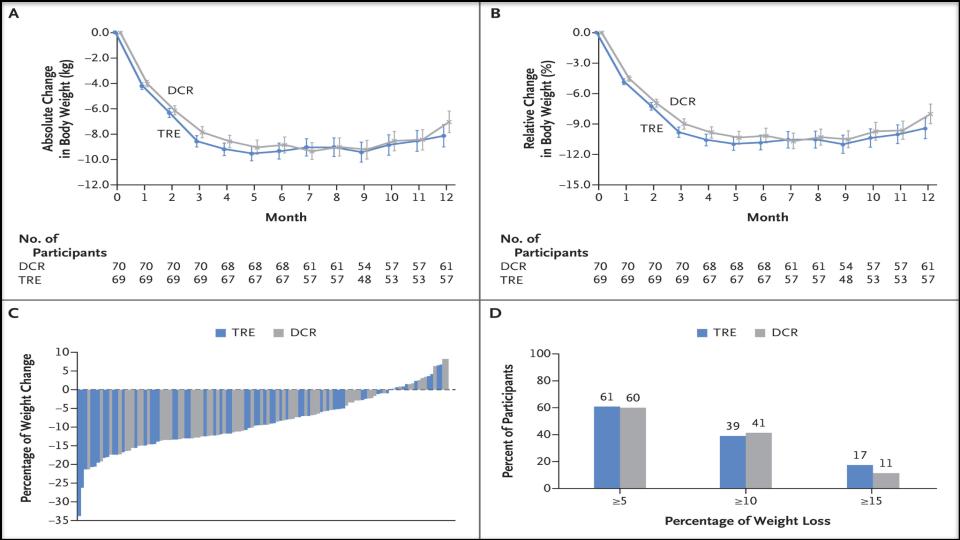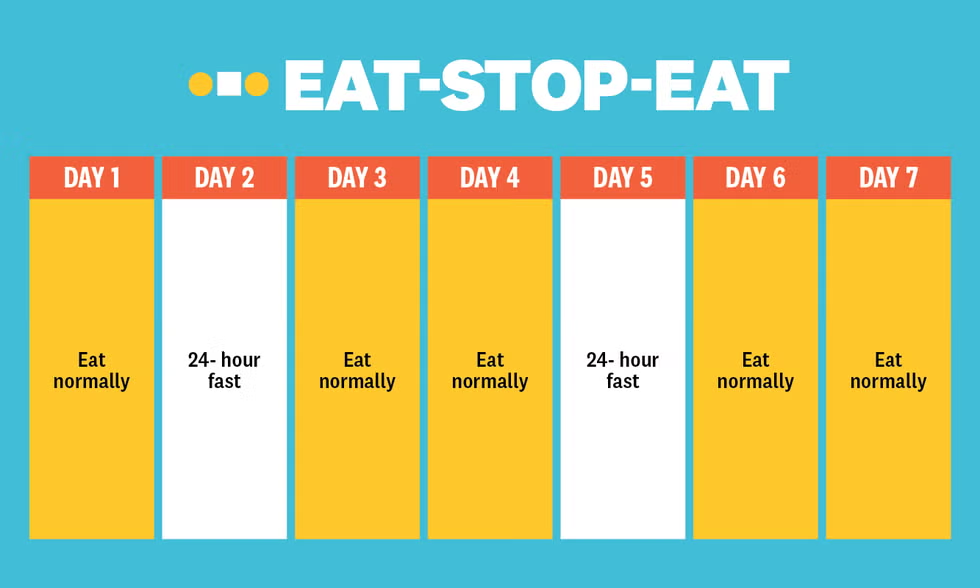This Alternate-day Fasting Method Outperformed the Rest—But There’s a Catch
A major new review found alternate-day fasting results in slightly more weight loss than other popular diets. However, researchers note the difference is minor and may not be sustainable, emphasizing that the best diet is one an individual can maintain long-term.

A comprehensive new analysis of popular dieting strategies has found that alternate-day fasting (ADF) leads to slightly more weight loss than other forms of intermittent fasting and traditional calorie-cutting diets. However, the researchers behind the study caution that the advantage is modest and may not be clinically significant for everyone, highlighting a crucial catch for those seeking the most effective weight loss plan.
The findings, published in the June 2025 issue of The BMJ, synthesize data from 99 clinical trials involving over 6,500 participants. The research, co-authored by investigators at the Harvard T.H. Chan School of Public Health, suggests that while intermittent fasting is a valid alternative to standard dieting, the most rigorous method provides only a marginal edge.
Key Findings at a Glance
| Key Finding | Detail/Statistic |
| Superior Method Identified | Alternate-day fasting resulted in the most weight loss compared to other diet types. |
| The “Catch” | The additional weight loss was ~1.3 kg (2.8 lbs) and did not meet the 2 kg threshold for clinical significance. |
| Adherence is Crucial | Experts emphasize that long-term consistency is more important than the specific diet chosen. |
The Data Behind the Diets
Intermittent fasting, a dietary approach that cycles between periods of eating and voluntary fasting, has surged in popularity. Its main forms include time-restricted eating (TRE), such as the 16:8 method where one eats within an 8-hour window, and whole-day fasting, like the 5:2 diet. The new meta-analysis aimed to clarify which, if any, of these popular methods held a true advantage.
Researchers found that all structured diets, whether intermittent fasting or continuous calorie restriction, resulted in more weight loss than no diet at all. When compared directly, alternate-day fasting—which typically involves a day of normal eating followed by a day of complete fasting or consuming very few calories (around 500)—came out on top.
According to the analysis, participants practicing ADF lost, on average, 1.3 kilograms (about 2.8 pounds) more than those on traditional calorie-restricted diets. The method also slightly outperformed other fasting styles.
“Of all forms of intermittent fasting, alternate day fasting—in which a person fasts for a full day, every other day—was most effective,” a statement from Harvard noted in relation to the findings.

More Than Just Weight Loss: Metabolic Health
The potential benefits of alternate-day fasting extended to key indicators of metabolic health. The study reported that ADF was associated with greater improvements in several cardiometabolic risk factors compared to other diets.
Specifically, the review found that ADF led to more significant reductions in:
- Total cholesterol
- Low-density lipoprotein (LDL) cholesterol, often called “bad cholesterol”
- Triglyceride levels
These markers are critical for cardiovascular health, and their improvement suggests a potential advantage of ADF beyond simply shedding pounds. However, researchers also noted these benefits were most apparent in studies lasting less than six months, raising questions about long-term efficacy.
The Significant Catch: Sustainability and Significance
Despite its statistical victory, experts urge a measured interpretation of the results. The primary “catch” is that the extra weight loss observed with alternate-day fasting did not cross the study’s threshold for being “clinically significant,” which was defined as a difference of at least 2 kilograms (4.4 pounds).
Furthermore, the demanding nature of ADF raises significant questions about long-term adherence. Fasting for a full 24 hours every other day can be physically and socially challenging. For many, this may be an unsustainable lifestyle, a point emphasized by independent experts.
“There is no compelling evidence that there is a ‘best’ diet for weight loss,” said Dr. David Sarwer, a clinical psychologist and weight loss expert who was not involved in the study, in a comment to Healthline. He explained that the ideal approach involves making “small, yet impactful changes… that cause minimal disruption to their lifestyle and that they can maintain for the long term.”
Zhila Semnani-Azad, a postdoctoral research fellow at Harvard and the study’s lead author, echoed this sentiment. “As with any dietary change, it is important to consult with health care providers and to consider one’s medical history, dietary preferences, social environment, and realistic long-term compliance,” she stated.

The Takeaway: Personalization Over Prescription
The consensus emerging from this landmark review is that while intermittent fasting is as effective as traditional calorie counting, no single method is a magic bullet. The slight statistical edge offered by alternate-day fasting may be offset by its difficulty.
The findings empower individuals to choose a weight loss strategy that best fits their personal lifestyle and preferences, which is the factor most likely to predict success. Whether it is the daily structure of time-restricted eating, the weekly approach of the 5:2 diet, or the more intensive alternate-day schedule, the most effective plan is the one that can be followed consistently without causing undue distress or social isolation.
Looking ahead, researchers called for longer-duration trials to better understand the lasting effects of these diets on both weight and overall health. For now, the focus remains on sustainability as the key ingredient for any successful weight management journey.








